Immerse yourself in the exquisite world of Gustave Flaubert with our free collection of Gustave Flaubert books in PDF format.
Gustave Flaubert, a pioneer of literary realism, is renowned for his meticulous prose and profound exploration of human emotions. His works captivate readers with their beauty, depth, and timeless relevance.
From the iconic Madame Bovary, a masterpiece of emotional complexity, to Sentimental Education and other classics, Gustave Flaubert’s writing delves into themes of love, ambition, and the pursuit of happiness.
Perfect for lovers of classic literature and masterful storytelling, this collection showcases the genius of an author who forever changed the landscape of fiction.
Download these Gustave Flaubert books in PDF now and experience the artistry of one of literature’s most celebrated voices.
1) A Simple Soul

A Simple Soul is part of "Three Tales", a book that Gustave Flaubert published in 1877, a year in which he had already written most of the works that -despite the limited success of some of them at the time of their publication- would consolidate his reputation as a novelist: "Madame Bovary" (1857), "Salammbô" (1862), "Sentimental Education" (1869) and "The Temptation of St. Anthony" (1874).
However, the elaboration of these three stories (in reality miniature novels) demanded the same enormous effort as any of his books, which forced him to search for the precise word, to find images whose verisimilitude resisted any contrast with reality, to devise plots after exhaustive readings and consultations, and to submit each of his pages to the test of reading aloud so as not to miss any dissonance, always in search of the perfect phrase.
2) Bouvard and Pecuchet
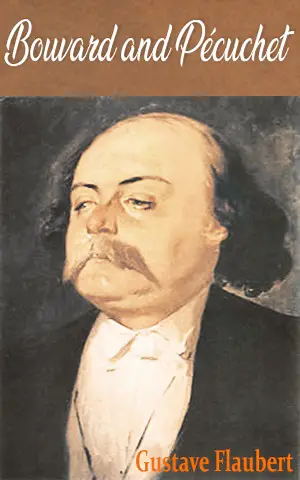
Bouvard and Pecuchet, published after the death of its author in 1881, is the novel of contemporary stupidity and vulgarity, whose roots lie in the blind faith in the redeeming power of technique, industry and commerce. Bouvard and Pecuchet, two small Parisian office workers, discover that they feel the same aversion for their mediocre life.
Bouvard's legacy arrives at just the right moment to enable them to change it: they settle on a farm in Normandy and devote themselves to agricultural experiments of all kinds, as well as to experimental studies in fields as varied as chemistry, astronomy, archeology or spiritualism.
In this unfinished novel, Flaubert amuses himself by ridiculing the scientific pretensions of his time. For the writing of this novel Flaubert made encyclopedic readings that reflect his obsession that the writer must document what he writes, so that subjectivity is reduced to the maximum.
3) Herodias

Herodias is a short story originally published in the work Three Tales in 1877, it is based on the biblical character of the same name and its story narrates the beheading of John the Baptist. To write it, the author was inspired by the dance of Salome, taken from a bas-relief in Rouen Cathedral, and by his experience of having observed a dancer during his stay in Egypt.
We have Herodias, who is holding a birthday party for Herod Antipas, her second husband, and has also hatched a plan to behead John. This plan is based on making Herod fall in love with her daughter Salome, so that he promises to do or give her whatever she desires, and in turn make her daughter ask for John's head.
As Herod does not oppose the request everything happens as Herodias has planned, and the party attendees witness how the executioner Mannaeus kills John.
4) Madame Bovary

Madame Bovary is a novel that was published in installments in the Revue de Paris from October 1, 1856 to December 15 of the same year; and in book form, in 1857.
Besides being one of the literary selections par excellence in the genre of the so-called late romanticism, Madame Bovary constitutes one of the reference points of the realist movement.
This work was developed in those years in three parts; with an incredible literary acuity, Gustave Flaubert shows his point of view on the life of the high society of France at the beginning of the 19th century, by marrying the protagonist to someone who offers her nothing more than to exhibit her as if she were a trophy.
5) Over Strand and Field

This travelogue collects Gustave's experiences and most detailed observations during his trip to Brittany, which began in May 1847 and ended on July 28 of the same year.
Flaubert made this trip with his friend Maxime du Camp, with whom he also shares authorship. Although the pen alternates in the text, the differences in the stroke of the two writers can be discerned without major problems. Du Camp fills his pages with history; Flaubert, on the other hand, is more romantic and sometimes sharp and ironic.
Among Gustave Flaubert's followers it is well known that the author was a great stylist, which is evident in Over Strand and Field thanks to his extraordinary eye for landscape, nature, people, cultural heritage; and to his wonderful descriptive language.
6) Salammbo
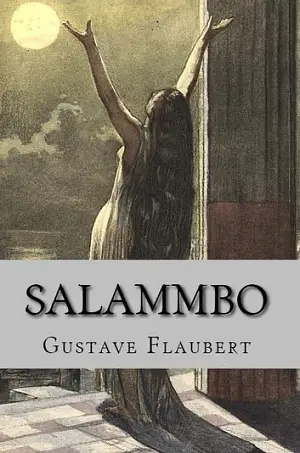
Salammbo is a historical novel first published in 1862. The action of the work takes place in the third century BC in the territory of Carthage, during the so-called Mercenary War, which occurred shortly after the Carthaginian defeat against the Romans in the First Punic War.
Like the author's previous novel, Madame Bovary, this work was very well received and consolidated Flaubert's reputation as a novelist. The novel, in its effort to revive the forgotten Carthaginian culture, mentioned all the details the author could glean from history books and offered detailed and colorful descriptions of daily life in Carthage, its customs and attire, descriptions that, in turn, exerted some influence on contemporary French fashion.
7) Sentimental Education
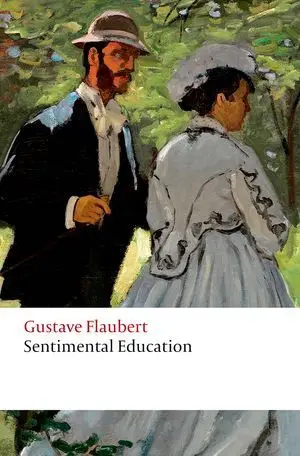
Sentimental Education (L'Éducation sentimentale in French) is a novel of 1869. It was his last novel published during his lifetime, considered one of the most influential novels of the 19th century. It was praised by contemporaries such as George Sand, Émile Zola and Henry James.
The novel describes the life of a young man named Frédéric Moreau who lives through the revolution of 1848 and the founding of the Second French Empire, and his love for an older woman, Madame Arnoux. Flaubert based much of his protagonist's experiences (including romantic passion) on his own life.
Sentimental Education has been described by Georg Lukács as the "psychological novel of disillusionment". In a historical setting, Gustave Flaubert sketches a hero with traits that, unlike Don Quixote, has a soul that surpasses in breadth of purpose the world in which he lives.
8) The George Sand

No less precious than Flaubert's great novels is his Correspondence, published in four volumes between 1887 and 1893, greatly expanded in successive editions.
From his childhood he teaches us the formation of the man and the writer, the genesis of his works and his ideas about art. The external vicissitudes are scarce - his trip to the Orient (1849-51) is highlighted in memorable pages -; the judgment on political and literary current affairs is sharp and scornful; the part granted to love is poor, despite his long relationship with Louise Colet, destined to end in an unhappy way because of the jealous incomprehension of his literary friend. And the writer's only passion, that of Mrs. Schlésinger, is barely mentioned.
Thus, Correspondence, and in this case that of Amantine Lucile Aurore Dupin, better known by her pseudonym George Sand, overflows with the other love, that of art; and for the literati these volumes are a veritable breviary.
9) The Temptation os St Antony
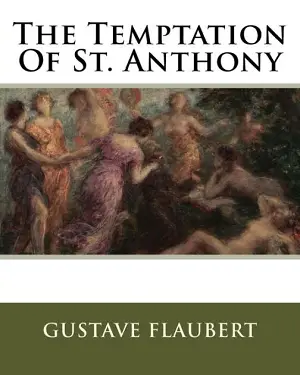
The Temptation of St Anthony is a dramatic prose poem originally published in 1874. When Flaubert was a young man of 24 he visited the Balbi Palace in Genoa and was inspired to write this work by a painting of the same title; it should also be noted that the French novelist spent his entire adult life working irregularly in it.
It is written in the form of a theatrical script and details the famous temptations faced by St. Anthony the Great in the Egyptian desert during one night. Among the main characters in this play we have: our protagonist, the aforementioned St. Anthony, who is constantly tempted to deviate from his beliefs regarding worship.
Other characters are: Ammonaria, one of his sister's friends; The Queen of Sheba who tries to evoke lust in Anthony; Hilarion, also known as Lucifer; Lust who is presented as a young woman and Death, as an old woman.
10) Three Short Works
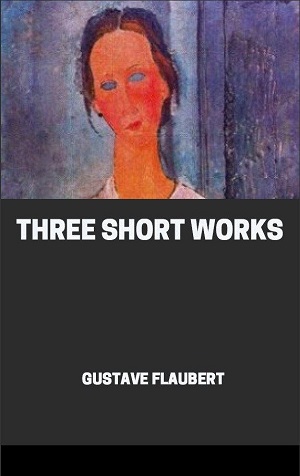
Three Short Works is a collection consisting of the stories A Simple Heart, Saint Julian the Hospitalier and Hérodias, written between 1875 and 1877.
Flaubert began writing Three Short Works in a state of intense discouragement brought on by historical and personal circumstances, and in the midst of serious doubts about his literary ability. Apparently, these tales are very different from each other, both in their setting and in their characters.
Each story is set in a different era. The first is set in the modern era, showing the story of Felicité, an employee of a bourgeois family characteristic of the time. The second story shows the life of Julian, a medieval man who is a mixture of saint and knight-errant. And finally, the last of the stories tells an event in the life of Herod Antipas, and the causes that lead to the death of John the Forerunner, also known as St. John the Baptist.







































